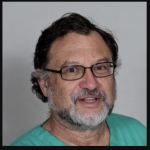The opioid epidemic has resulted in some soul-searching in the medical community. From those thought leaders who described pain as a “fifth vital sign” for all physicians to measure and treat, to an increasing series of academic “one up man ship” articles demonstrating that their or another group of physicians can reduce opioid prescribing for a variety of conditions. State legislators have shown that they care by practicing medicine without a license and directing physicians prescribing behavior, and the attorneys general have initiated lawsuits that will cost those individuals that pay taxes and/or take medicines more money.
Piling on is the US Preventative Services Task Force (USPSTF), a body that develops practice guidelines for medical care on a national scale. Their latest recommendation, sent out for the opinions of “stakeholders” before it is set in stone, asks that physicians query their patients about drug use at every medical encounter. They go on to suggest that the evidence is that this will be a benefit, not harm to those over 18 and that evidence-based medicine cannot be as adamant in the recommendation to those under 18. To assist physicians, they suggest one of three short surveys that basically ask are you smoking, drinking, or using drugs?
The recommendation comes with a caveat, “Screening should be implemented when services for accurate diagnosis, effective treatment, and appropriate care can be offered or referred.” In fairness, the USPSTF does acknowledge that
“the benefits and harms of screening may vary due to several health, social, and legal issues. In many communities, affordable, accessible, and timely services for diagnostic assessment and treatment for patients with positive screening results are in limited supply or unaffordable. Providers should be aware of any state requirements for mandatory screening or reporting of screening results to medicolegal authorities and understand the positive and negative implications of reporting.”
Here are some cherry-picked findings in their report:
- “No studies directly addressed the benefits of screening on reducing illicit drug use or drug-related health, social, or legal outcomes in any population.”
- Treatment with medications like methadone reduced illicit drug use by 27% and increased long term participation in treatment programs by 75%. But in general, “the effects of opioid agonists on health, social, and legal outcomes were mixed and did not show clear treatment benefits.”
- Psychosocial interventions, i.e., talk therapy rehab, reduced illicit drug use by 60%. But this percentage was reduced in those referred because of screening rather than motivation. And again, “Evidence on the association between psychosocial interventions and health, social, or legal outcomes related to use of cannabis, stimulants, opioids, “any drug,” or mixed drugs in adults was sparse and showed no or limited effectiveness.”
- “No studies addressed the harms of screening in any population.”
So, we have a recommendation for a screening test that has no clear benefits or harms, but it does show we care. As a surgeon, I suppose I should jump on the “let’s do something” bandwagon, after all, we are doers. And requiring physicians to follow this screening recommendation will make some health systems and administrators appear more caring and at little to no cost to the administrators. But it will subtract time from the "15.3-minute" appointments that the schedule calls for to be optimally efficient, and a lot of 70 year-olds will wonder why they are being asked about their use of weed and meth. There are a lot of things we might do to end this problem; mass screening of the population is not one of them. It can’t hurt is not a reason for medical testing as anyone with a false positive result can attest. With the national data suggesting that this is a problem predominantly in those 18 to about 27 maybe we should start there if we start at all.
Source: Draft USPSTF Recommendation Statement: Illicit Drug Use, Including Nonmedical Use of Prescription Drugs: Screening

